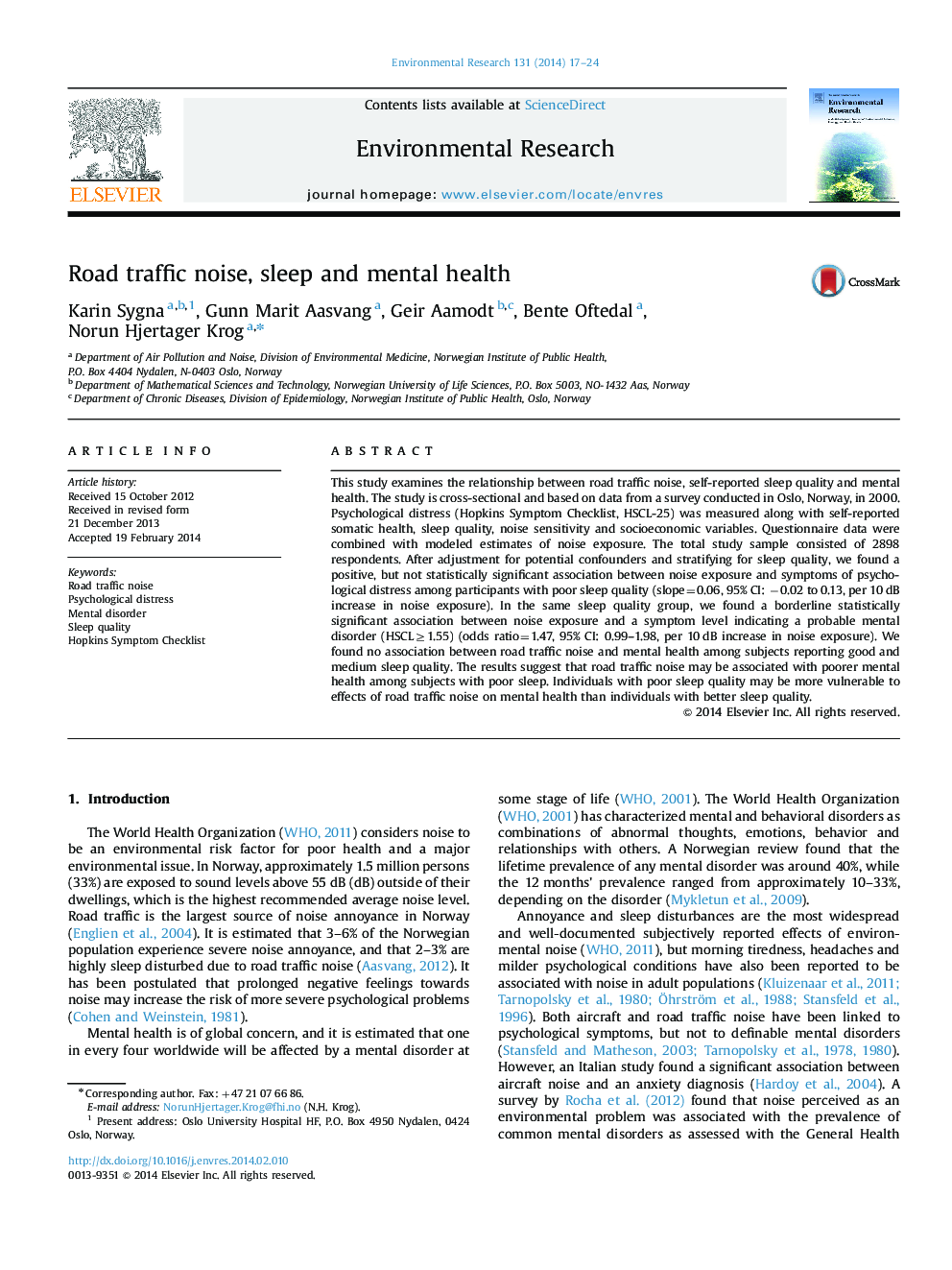| Article ID | Journal | Published Year | Pages | File Type |
|---|---|---|---|---|
| 6352731 | Environmental Research | 2014 | 8 Pages |
Abstract
This study examines the relationship between road traffic noise, self-reported sleep quality and mental health. The study is cross-sectional and based on data from a survey conducted in Oslo, Norway, in 2000. Psychological distress (Hopkins Symptom Checklist, HSCL-25) was measured along with self-reported somatic health, sleep quality, noise sensitivity and socioeconomic variables. Questionnaire data were combined with modeled estimates of noise exposure. The total study sample consisted of 2898 respondents. After adjustment for potential confounders and stratifying for sleep quality, we found a positive, but not statistically significant association between noise exposure and symptoms of psychological distress among participants with poor sleep quality (slope=0.06, 95% CI: â0.02 to 0.13, per 10 dB increase in noise exposure). In the same sleep quality group, we found a borderline statistically significant association between noise exposure and a symptom level indicating a probable mental disorder (HSCLâ¥1.55) (odds ratio=1.47, 95% CI: 0.99-1.98, per 10 dB increase in noise exposure). We found no association between road traffic noise and mental health among subjects reporting good and medium sleep quality. The results suggest that road traffic noise may be associated with poorer mental health among subjects with poor sleep. Individuals with poor sleep quality may be more vulnerable to effects of road traffic noise on mental health than individuals with better sleep quality.
Keywords
Related Topics
Life Sciences
Environmental Science
Health, Toxicology and Mutagenesis
Authors
Karin Sygna, Gunn Marit Aasvang, Geir Aamodt, Bente Oftedal, Norun Hjertager Krog,
